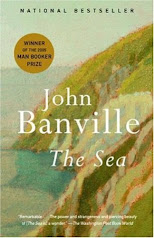We have chosen The Post-American World by Fareed Zakaria for our August meeting. Copies are available behind the counter at a 10% discount.
Here are some links to peruse from the New Yorker, Wikipedia, and our local North Coast Journal on the book.
And here's a BBC interview with Zakaria:
Join us to discuss foreign affairs here at Northtown Books August 9th, the second Sunday of the month, at 5:30.

Image of a typical reader of the book from The NY Times book blog, Paper Cuts.

